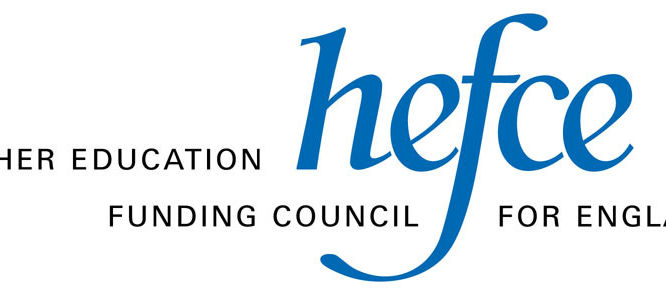A consultation launched by HEFCE aims to promote dialogue within the higher e...
A consultation launched by HEFCE aims to promote dialogue within the higher education sector on what more can be done to promote sustainable development. Students are also invited to contribute to the discussion.
Universities and colleges have for many years been making substantial reductions in carbon emissions through their teaching and research, through their business operations and through their influence on communities, staff and students. While evidence shows that many higher education institutions have successfully reduced their direct environmental impact in the past 25 years, the sector has challenging targets to meet by 2020 for reduction of carbon emissions.
HEFCE’s framework for sustainable development sets out some of the ways that universities and colleges can contribute toward reducing their environmental impact, and how HEFCE can best support them.
Steve Egan, HEFCE’s Interim Chief Executive said:
‘Sustainable development is central to HEFCE’s work with the higher education sector. Students are eager for universities to maintain their high level of commitment to sustainable development, and we are looking carefully at what more we can do to enrich and support the sector’s work.
‘We are committed to working in partnership with students and universities to maximize higher education’s contribution. There is much that everyone in higher education can do to promote a sustainable future by reducing carbon emissions, developing new technologies and changing behaviour.’
The consultation outlines HEFCE’s actions to promote sustainable development since February 2009, which include funding sustainability-related projects and good practice, setting up the Revolving Green Fund and supporting the National Union of Students’ Student Green Fund. The publication also indicates future actions for HEFCE.
Students themselves have demonstrated commitment to environmental awareness in many ways. The National Union of Students’ Green Impact and Student Switch Off initiatives are two examples mentioned in the consultation.
Two consultation events in January are intended to be a forum for higher education staff and students to discuss future developments, and will be an opportunity for individual institutions to share their success stories.
The EAUC is a Member-led organisation and as such, we represent you, and ensure that your views on topical issues are conveyed to the rest of the sector and to the Government. One important way we can do this is by responding to consultations from the Government and other organisations.
We will shortly be collecting your responses to this consultation so we can represent the views of all EAUC Members as one powerful voice.
Read the consultation
Find out more about EAUC consultations
Universities and colleges have for many years been making substantial reductions in carbon emissions through their teaching and research, through their business operations and through their influence on communities, staff and students. While evidence shows that many higher education institutions have successfully reduced their direct environmental impact in the past 25 years, the sector has challenging targets to meet by 2020 for reduction of carbon emissions.
HEFCE’s framework for sustainable development sets out some of the ways that universities and colleges can contribute toward reducing their environmental impact, and how HEFCE can best support them.
Steve Egan, HEFCE’s Interim Chief Executive said:
‘Sustainable development is central to HEFCE’s work with the higher education sector. Students are eager for universities to maintain their high level of commitment to sustainable development, and we are looking carefully at what more we can do to enrich and support the sector’s work.
‘We are committed to working in partnership with students and universities to maximize higher education’s contribution. There is much that everyone in higher education can do to promote a sustainable future by reducing carbon emissions, developing new technologies and changing behaviour.’
The consultation outlines HEFCE’s actions to promote sustainable development since February 2009, which include funding sustainability-related projects and good practice, setting up the Revolving Green Fund and supporting the National Union of Students’ Student Green Fund. The publication also indicates future actions for HEFCE.
Students themselves have demonstrated commitment to environmental awareness in many ways. The National Union of Students’ Green Impact and Student Switch Off initiatives are two examples mentioned in the consultation.
Two consultation events in January are intended to be a forum for higher education staff and students to discuss future developments, and will be an opportunity for individual institutions to share their success stories.
The EAUC is a Member-led organisation and as such, we represent you, and ensure that your views on topical issues are conveyed to the rest of the sector and to the Government. One important way we can do this is by responding to consultations from the Government and other organisations.
We will shortly be collecting your responses to this consultation so we can represent the views of all EAUC Members as one powerful voice.
Read the consultation
Find out more about EAUC consultations












